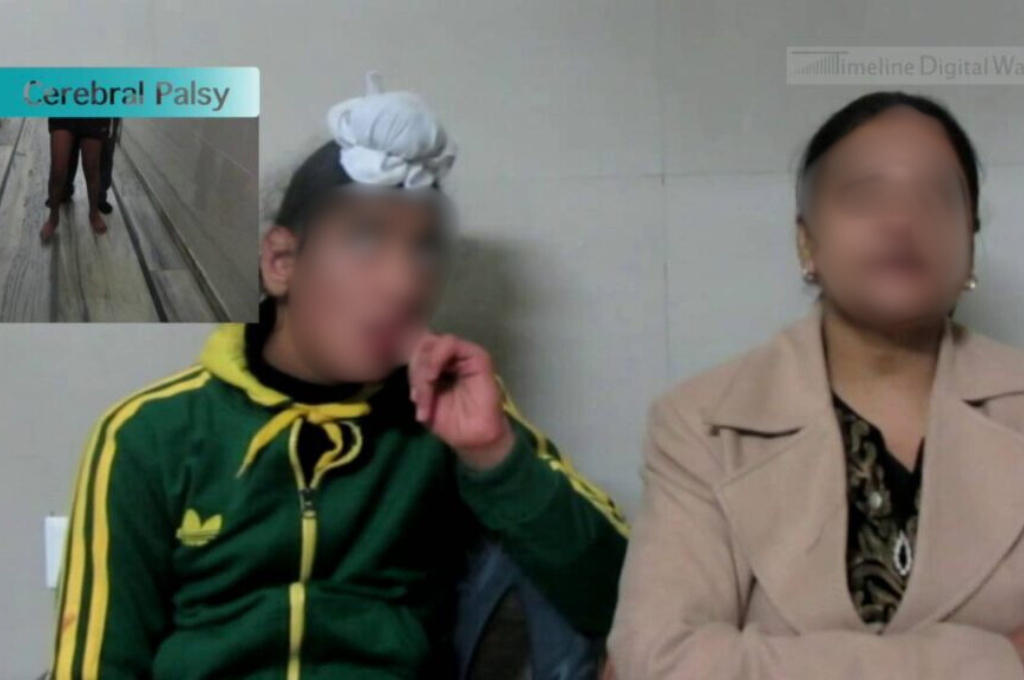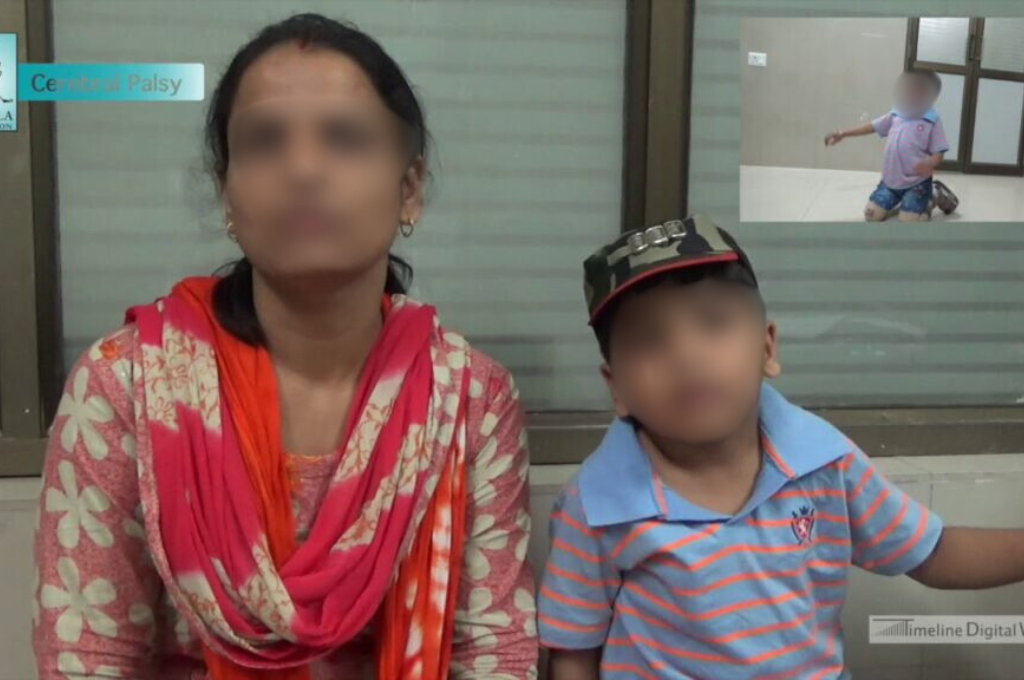Understanding Bullying and Cerebral Palsy
Bullying involves unwanted, aggressive behavior toward someone. For children and adults with CP, bullying can manifest in various forms, including physical, verbal, social, and cyberbullying. Factors like physical differences, mobility or speech challenges, and reliance on assistive devices can, unfortunately, make individuals with CP targets for bullying behaviors.
Recognizing the Signs of Bullying
Recognizing bullying is the first step in addressing it. Signs may include:
- Unexplained injuries or damaged personal items
- Changes in mood, behavior, or sleep patterns
- Avoidance of social situations or school
- Decreased self-esteem or increased self-critical behavior
- Sudden changes in academic performance
- Strategies for Support and Intervention
Impact of Bullying on Children with Cerebral Palsy
Children with cerebral palsy (CP) are particularly vulnerable to the impacts of bullying due to the visible nature of their condition, potential communication difficulties, and social challenges. Understanding the effects of bullying on these children is crucial for prevention and intervention.
Emotional and Psychological Effects
Bullying can lead to significant emotional and psychological distress for children with CP. They may experience increased anxiety, depression, and a severe drop in self-esteem. These emotional struggles can exacerbate the challenges they already face with their condition, leading to a cycle of distress and isolation.
Impact on Academic Performance and Social Withdrawal
Children with CP who are bullied often find it difficult to concentrate on their studies, leading to a decline in academic performance. It can also cause them to withdraw from social interactions to avoid being targeted, which can hinder their social development and lead to feelings of loneliness and isolation.
Long-term Consequences of Being Bullied
The impact of bullying on children with CP can extend far beyond their childhood years. Long-term consequences may include chronic depression, anxiety disorders, trust issues, and difficulties forming healthy relationships. Furthermore, the stress and trauma from bullying can exacerbate the physical symptoms of CP, affecting their overall health and quality of life.
By acknowledging and addressing the unique challenges faced by children with CP in the context of bullying, parents, educators, and caregivers can take proactive steps to protect and empower these vulnerable members of our communities.
Advice For Parents and Caregivers
1. Open Communication
Create a safe and supportive environment at home where feelings and experiences can be shared openly without judgment.
2. Educate About Rights
Teach children about their rights and the importance of respect and kindness towards all individuals, regardless of differences.
3. Advocacy and Reporting:
Know the procedures for reporting bullying in your child’s school or community settings and advocate for immediate and appropriate action.
Advice For Schools and Educators
4. Foster an Inclusive Environment
Implement programs and curricula that promote student diversity, inclusion, and empathy.
5. Establish Clear Policies
Develop and enforce anti-bullying policies that include specific measures for prevention, reporting, and addressing bullying incidents.
6. Provide Training
Offer training for staff and students on recognizing the signs of bullying, understanding the impact of bullying on individuals with disabilities, and effective intervention strategies.
Promoting Awareness and Change
Community Engagement
Engaging the broader community through awareness campaigns, workshops, and events can help dismantle stereotypes and foster a culture of acceptance and respect. Sharing stories and experiences of individuals with CP can also humanize the condition, reducing stigma and ignorance.
Leveraging Social Media and Technology
Social media and digital platforms offer powerful tools for advocacy and education. Campaigns aimed at raising awareness about CP and bullying can reach a broad audience, encouraging solidarity, understanding, and action against bullying behaviors.
Advocating for Policy Change
Working with policymakers to ensure that laws and regulations support the rights and protection of individuals with disabilities from bullying and discrimination is crucial. Advocacy efforts can focus on improving education, healthcare, and social services to address the needs of those with CP better.
Bullying, Civil Rights, and Government Measures in India for Individuals with Cerebral Palsy
In India, individuals with cerebral palsy (CP) are entitled to the same rights and protections as all citizens, including the right to education, employment, and protection from discrimination and harm.
Recognizing the unique challenges faced by those with CP, especially in the context of bullying, the Indian government has enacted laws and initiatives aimed at safeguarding their rights and promoting inclusion. At Trishla Foundation, we stand with these measures, advocating for enforcing ownership and implementing supportive policies for individuals with CP.
Understanding Civil Rights for Individuals with CP
Civil rights for individuals with cerebral palsy in India are enshrined in various legislative frameworks designed to prevent discrimination and ensure equal opportunities in all aspects of life. Key among these are:
The Rights of Persons with Disabilities (RPWD) Act, 2016
This comprehensive act aims to ensure the full participation of individuals with disabilities in society. It emphasizes non-discrimination, full accessibility, and equal opportunities, covering education, employment, and social involvement. Importantly, it includes provisions to protect individuals with disabilities from abuse, violence, and neglect, which encompasses measures against bullying.
The National Trust Act, 1999
Explicitly focusing on individuals with autism, cerebral palsy, mental retardation, and multiple disabilities, The National Trust Act of 1999 act establishes measures for their care and protection. It also promotes opportunities for self-development and integration into the mainstream.
Indian Government Measures Against Bullying
The Indian government, through its legislative framework and educational policies, has taken steps to address bullying, especially in schools:
Inclusive Education Policies
The RPWD Act mandates inclusive education, ensuring that children with disabilities are not segregated but included in mainstream schools with appropriate support. This approach fosters understanding and acceptance among peers, reducing the likelihood of bullying.
Awareness and Training Programs
The government, in collaboration with NGOs and educational institutions, conducts awareness programs to sensitize the public and school communities about disabilities and the rights of individuals with disabilities. These programs include teacher training on inclusive education and handling bullying incidents.
Legal Recourse and Protection
The RPWD Act provides legal recourse for individuals facing discrimination or abuse, including bullying. It mandates the establishment of special courts to handle cases involving violations of the rights of persons with disabilities, ensuring that justice is accessible and swift.
Advocacy and Support by Trishla Foundation
At Trishla Foundation, we complement government efforts by advocating for the rights of individuals with CP and supporting those affected by bullying. Our initiatives include:
Education and Empowerment
We offer educational programs for individuals with CP, their families, and communities to empower them with knowledge about their rights and how to advocate for themselves.
Legal Aid and Counseling
In collaboration with legal experts, we provide guidance and support to individuals and families seeking to address bullying incidents through legal channels.
Collaboration with Schools
We work with educational institutions to implement anti-bullying policies and inclusive education practices, creating safer and more supportive environments for students with CP.
Support Strategies for Children with Cerebral Palsy Facing Bullying
At Trishla Foundation, we are deeply committed to supporting children with cerebral palsy (CP) and addressing the challenges they face, including bullying. Bullying can have profound effects on a child’s emotional well-being, self-esteem, and overall quality of life. Understanding why bullying occurs and how to support children who are victims are crucial steps in creating a safer and more inclusive environment for all children, especially those with disabilities like CP.
Understanding Why Kids Bully Others
Bullying behavior is complex and can be driven by various factors, including:
Lack of Understanding
Children often fear or mock what they do not understand. A lack of awareness about cerebral palsy and the challenges it presents can lead to bullying behaviors.
Peer Pressure
Children, especially in group settings, may bully others to conform with peers or to avoid becoming targets themselves.
Seeking Control
Some children bully to feel powerful or in control, especially if they feel powerless in other areas of their lives.
Mimicking Behavior
Children exposed to aggressive behavior at home or in media may replicate this behavior toward others.
Attention Seeking
Bullying can be a way for children to gain attention from peers or adults, even if it is negative attention.
Understanding these underlying reasons is the first step in addressing and preventing bullying. Educating children, parents, and educators about CP and fostering empathy and inclusion from an early age is essential.
How to Help Children with Cerebral Palsy Who Are Bullied
1. Foster Open Communication
Encourage daily communication with children to share their feelings and experiences. Listening without judgment is crucial. Assure them that it is not their fault and that they are not alone.
2. Educate About Cerebral Palsy
Increasing awareness and understanding about CP among children, educators, and parents can reduce fear and misconceptions. This can be achieved through classroom discussions, inclusive activities, and bringing in experts or organizations like the Trishla Foundation to share knowledge.
3. Develop Coping Strategies
Teach children with CP coping mechanisms for bullying, such as seeking help from a trusted adult, using assertive but not aggressive responses, and focusing on their strengths and activities that make them happy.
4. Strengthen Social Skills
Encouraging participation in social activities and groups can help children with CP build friendships and a support network, reducing isolation and vulnerability to bullying.
5. Involve the School
Work closely with schools to ensure they know the situation and enforce anti-bullying policies. Schools should have clear intervention strategies and promote a positive, inclusive environment.
6. Seek Professional Support
Consider seeking cerebral palsy counseling for children. They can provide individualized strategies to deal with bullying and support the child’s emotional well-being.
7. Advocate for Inclusive Education
Promote inclusive education practices that integrate children with all abilities in mainstream activities and classrooms. This fosters understanding, acceptance, and respect among peers from an early age.
8. Empower the Child
Help children with CP feel empowered by focusing on their strengths and achievements. Encourage activities and hobbies that boost their confidence and sense of self-worth.
Conclusion
Trishla Foundation believes in a world where individuals with cerebral palsy are recognized for their abilities, resilience, and potential rather than being defined by their challenges. By understanding the issue of bullying, providing targeted support, and advocating for change, We can make significant strides towards a more inclusive and compassionate society. Together, we can ensure that individuals with CP have the opportunity to live fulfilling lives free from the harm of bullying.





